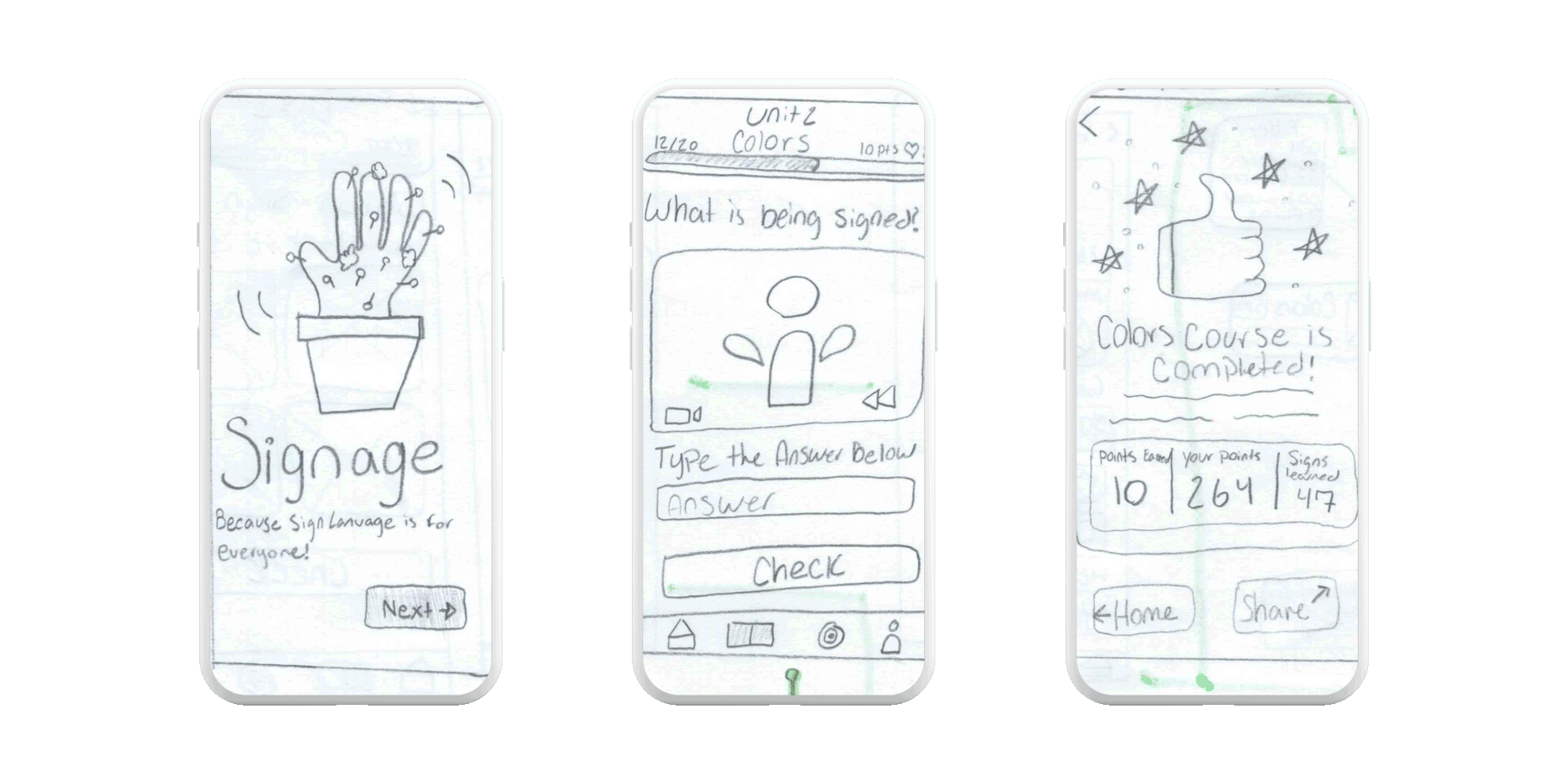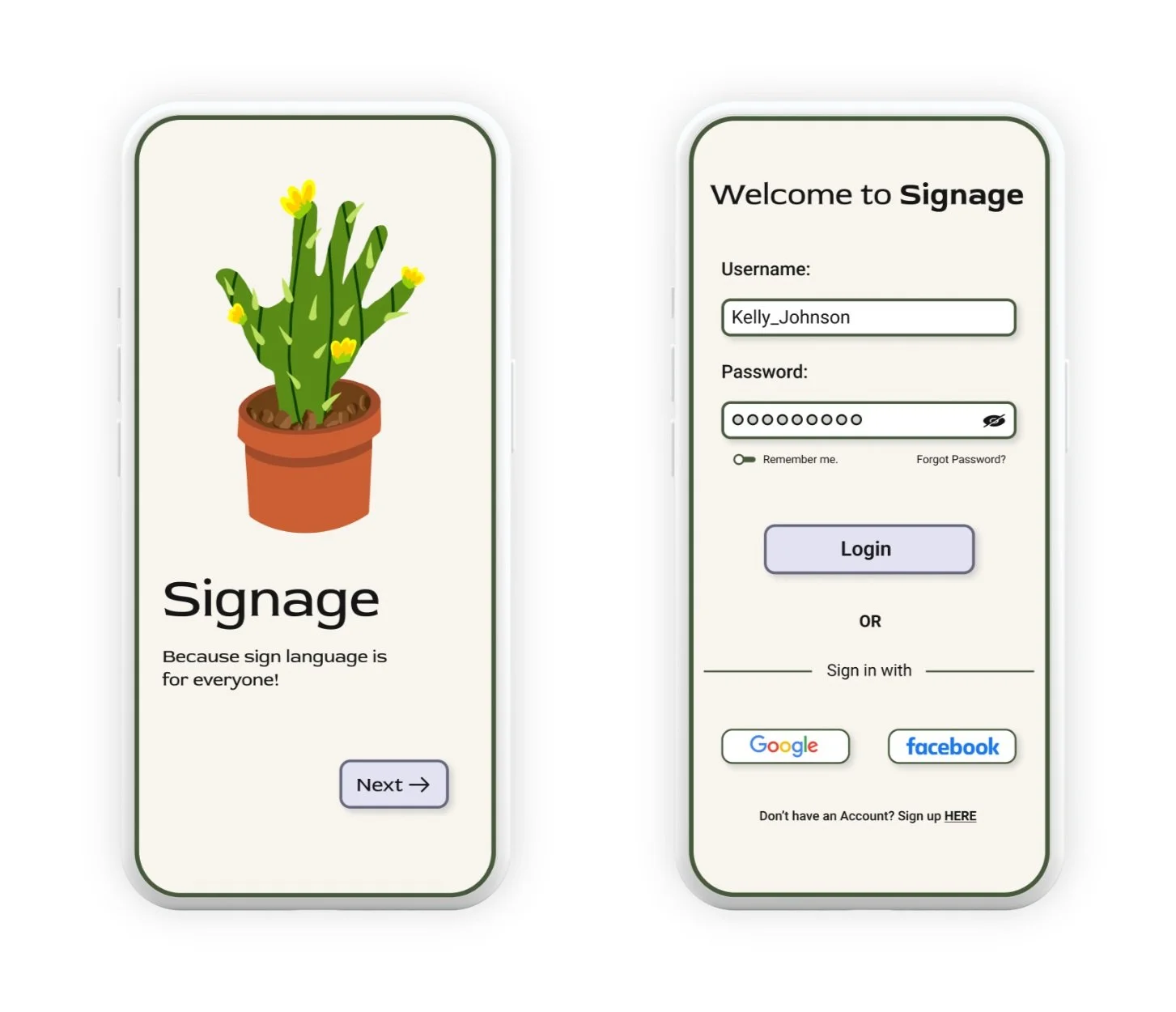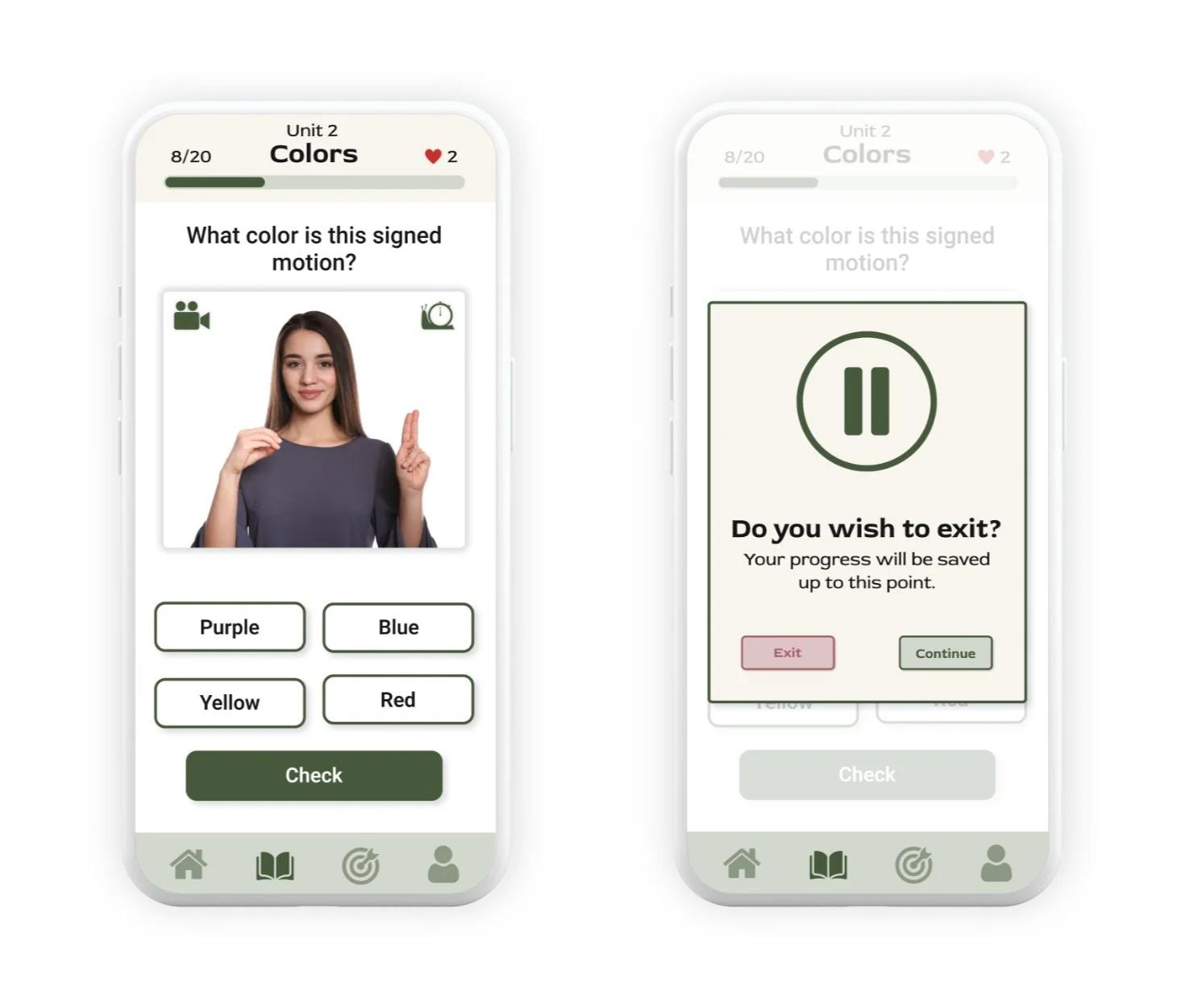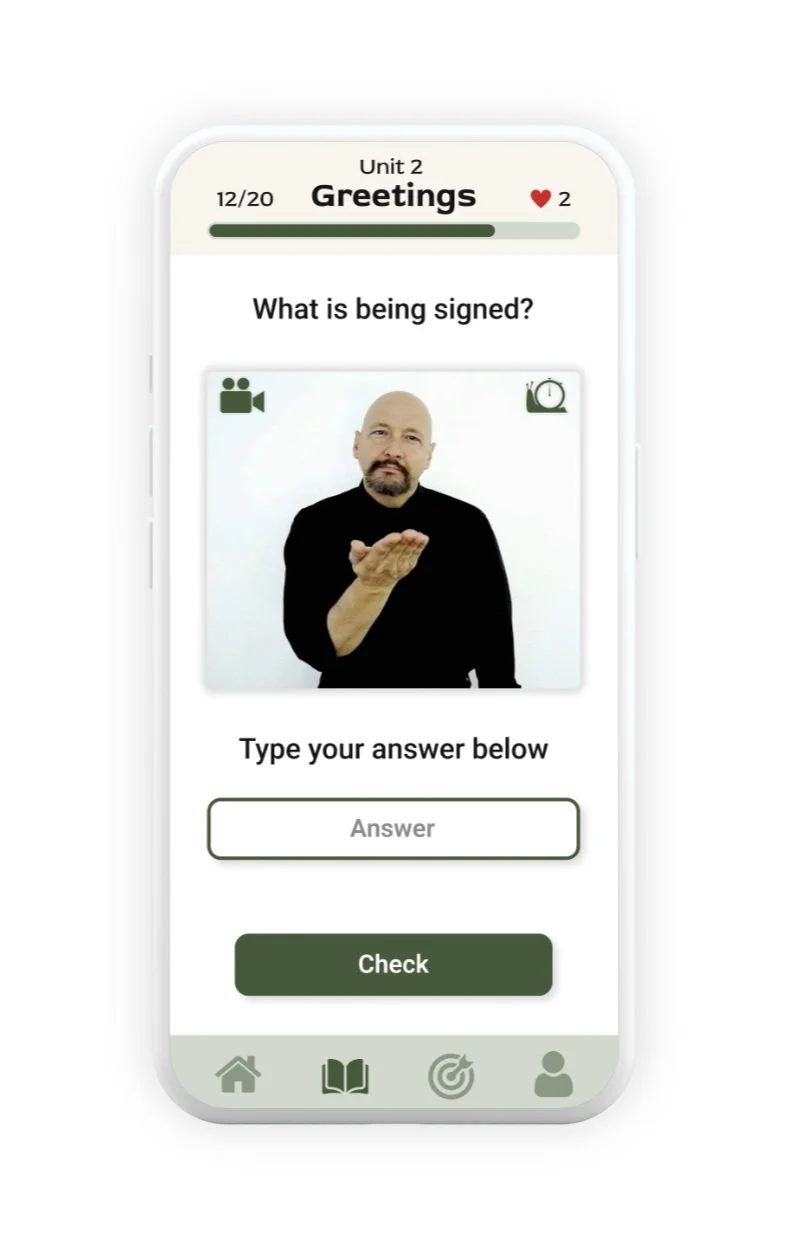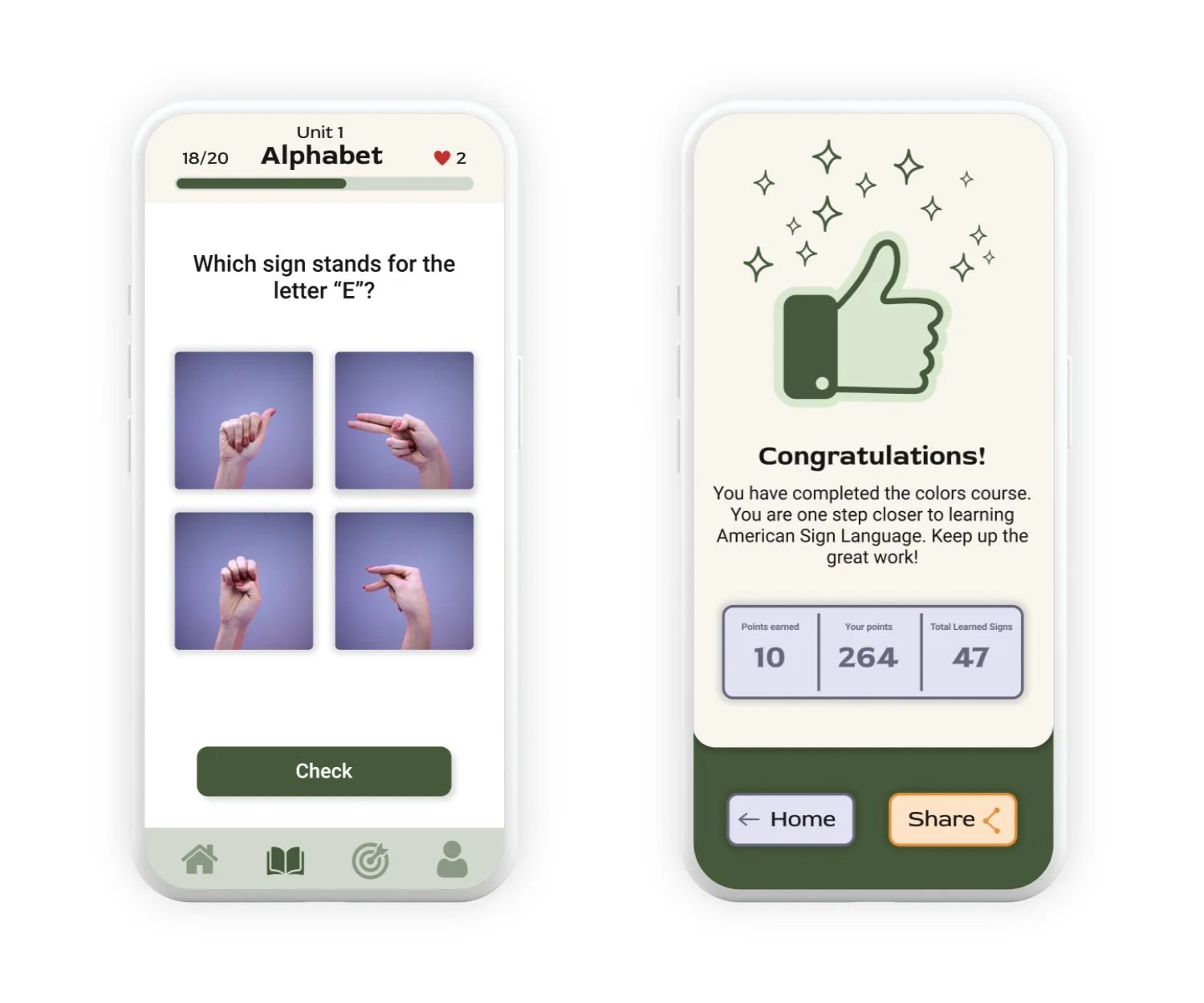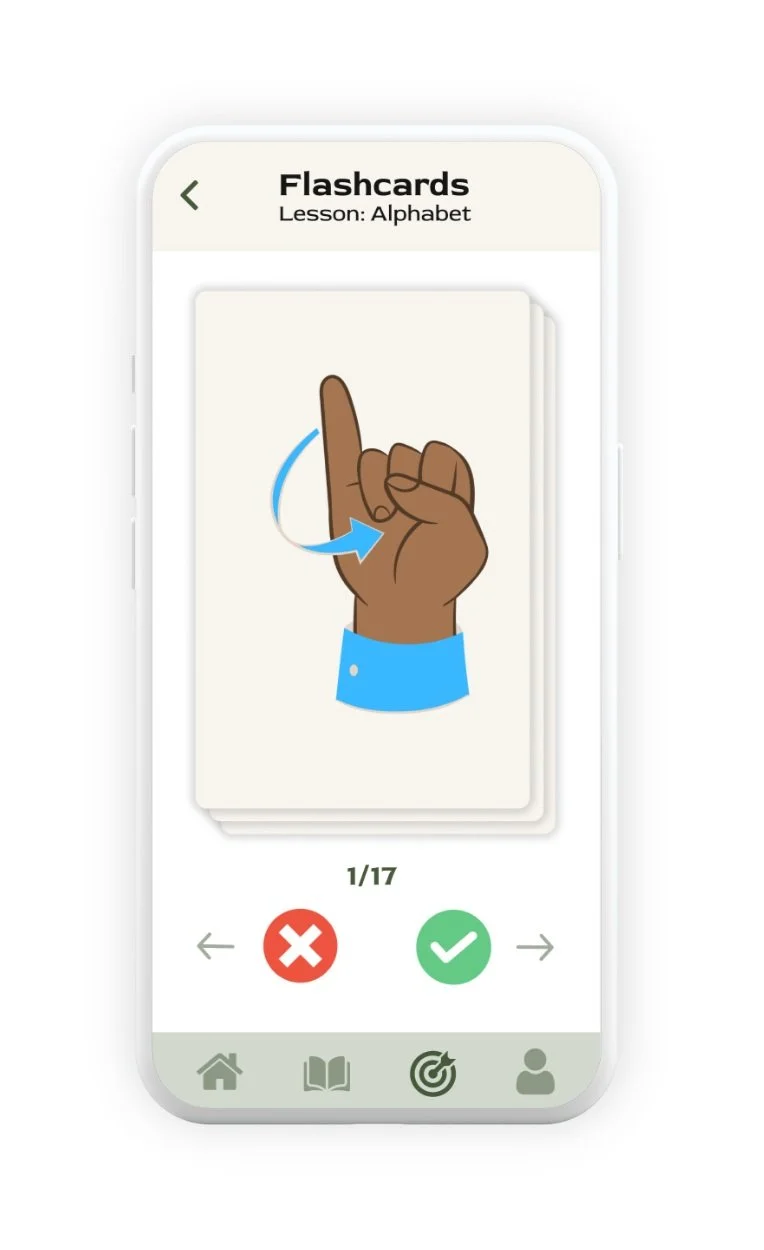American Sign Language app that allows users to participate and learn ASL.
Project Overview
Signage is an American Sign Language app that allows users to participate and learn ASL. Each lesson takes users through follow-along video lessons, quizzes, and self-recorded video progress. Allowing sign language learning for everyone, anywhere!
Problem
20% of the global population have hearing loss, which accounts for about 1.5 Billion individuals. ASL is not only used by the deaf community but by those who are mute, hard of hearing, the elderly, friends, family, etc. Current ASL apps on the market fall short of what makes an engaging and educational resource such as poorly structured lessons, incorrect signing, and overall confusing interface designs.
My Role:
Entire product design from research to conception, visualization and testing.
User Research
User Personas
User Flow
Low fidelity Wireframes
Visual Design
Prototype Mockups
Project specifics:
Duration: Sep 2022 - Nov 2022
Figma
Photoshop
Procreate
Canva
Flaticon
Design process
Competitive Analysis
I started my research with a competitive analysis in order to understand my direct and indirect sources in the current market. From this, I also identified usability gaps and began to develop possible alternative solutions. The competitive analysis assessed general information, first impressions, interaction, visual design and content.
Interviews and User Personas
Because ASL goes beyond the deaf community, I opened up my research participants to a variety of individuals ranging from fluent ASL to no prior experience. These in-person and virtual interviews followed my interview question guide below.
Following the initial interviews, I gathered the traits and qualities of my interview participants to create user personas of the ideal user.
*View Signage interview guide - HERE
*Interview results available upon request
Building empathy with users
To further understand my users, I organized the interview results into an empathy map to illustrate the perceptions, motivations, and behaviors that drive their decisions when interacting with a product.
Laying out the User Flows
Keeping in mind the target audience, I conducted several user flows to express the many pathways users could take when interacting with the Signage application. Enhancing the ease of movement throughout the app.
Following the user research, I began by wireframing the blueprints for Signage to provide a visual understanding of Signage in its early stages. After the wireframe usability interviews were assessed, the Signage low-fi wireframes went through an additional redesign overview to adjust the designs for the best possible layout. The usability study followed 6 KPIs such as user error rates, time on tasks, drop-off rates, conversation rates, navigation vs search, and net promoter scale. The first round of usability studies reported 33% hesitation on certain tasks. This led to a wireframe redesign that had a successful rate of 100% across all KPI questions.
Wireframing the solution
*View written wireframes - Here
*Wireframe usability interview results available upon request
High-fidelity wireframes
Welcome Designs
Homepage and Settings
Prerecorded videos from trained professionals for users to follow along. Option to record your signing progress through self-video documentation. With an option to slow-down the video content.
Lesson video format 1 & Pause
Lesson Format 2
Written response format to a signed video.
Lesson format 3 & lesson completion
Photo selection lesson.
“Target Practice” - Flashcards
To reinforce the motion to a word or saying
Iteration and Reflection
Throughout the duration of this project, I re-learned how important wireframe usability testing reflects on both the research and final designs of an application. Based on the results from the usability testing, Signage went through a revamping to its sitemap and wireframes, thus leading to the final designs above. As a beginner to ASL myself, I found it important to interview a diverse group of individuals ranging from no experience to fluent signing abilities. This aided in developing the lesson-based material and iterations. Overall, I consider Signage to be a resounding success!





